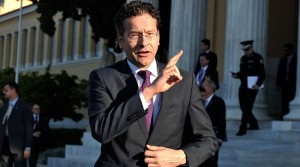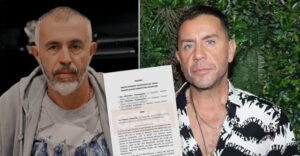Dutch Finance Minister and Eurogroup head Jeroen Dijsselbloem paid a lightning visit to Athens on Friday for talks with new Prime Minister Alexis Tsipras and Finance Minister Yanis Varoufakis, meeting with the former for half an hour.
In statements attributed to Tsipras, the new Greek leader expressed his confidence that an agreement could be worked with European partners, saying this would be positive for Europe and Dijsselbloem, personally.
Other words Tsipras mentioned were “good will” and a “new mutually beneficial agreement”.
In statement that were political “light years” removed from the era when his top SYRIZA party cadres promised to “tear up” the bailout agreements and abolish the “memoranda with one amendment tabled in Parliament”, Tsipras referred to a “commitment” to maintain a balanced budget with a primary surplus.
His other pledge on Friday — coinciding with the Dijsselbloem visit — was to change, as he said, the “country’s course without burdening the taxpayers of other countries”.
“We don’t want to create new deficits. But we won’t live with constant social deficits. We’re also committed, through a popular mandate, to implement our program, which is focused on dealing with the humanitarian crisis; to restart the economy and to restore employment,” Tsipras said in again employing the “humanitarian crisis” leitmotif favored by SYRIZA’s candidates in the pre-election campaign.
A day before his arrival in Athens, Dijsselbloem warned the new Greek government that if it insists on its pre-election promises it will derail reforms and delay the economy’s recovery.
The Eurogroup’s head added that “it is too early to judge” what the Tsipras government will do. “In all honesty, if all the promises made during the election campaign are carried out, the Greek national budget will be derailed very soon”, he said from Amsterdam.
The Dutch FinMin stated that he is ready to listen to Athens’ proposals on alleviating debt, but added that “the most important thing for Greece is to keep to the agreements it has signed”.
Being fully aware that today’s critical talks may signal the beginning of re-negotiations on bailout terms allocated by the troika to Greece, Dijsselbloem chose to be accompanied to Greece by “tough” negotiator Thomas Wieser, the head of the Eurogroup Working Group.
And, although newly-appointed FinMin has stated that the Greek government will try to avoid rupture with the country’s creditors and deconstruct the narrative between Greece and the troika, it is obvious to all those involved that the battle has just begun.
Ask me anything
Explore related questions





